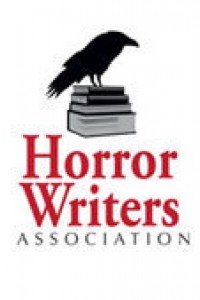Department of Education Dismisses Idea of “Book Bans,” Community Responds
 Signaling a change in policy under the Trump administration, the Department of Education announced sweeping changes to its policies regarding school libraries and local book removals, likely to impact genre books and young readership.
Signaling a change in policy under the Trump administration, the Department of Education announced sweeping changes to its policies regarding school libraries and local book removals, likely to impact genre books and young readership.
The DOE’s Office for Civil Rights has dismissed 11 complaints “related to so-called ‘book bans'” and has rescinded guidance for navigating book removal in the context of civil rights laws. Additionally, the Office for Civil Rights will no longer employ a “book ban coordinator” to investigate instances of challenged books for civil rights compliance.
These new efforts were announced on Friday, January 24, via a DOE press release entitled “U.S. Department of Education Ends Biden’s Book Ban Hoax.” The press release asserts that the Biden Administration “amplified [a] false narrative” that students’ rights were being infringed by the removal of challenged and difficult materials. Says the release:
Attorneys quickly confirmed that books are not being “banned,” but that school districts, in consultation with parents and community stakeholders, have established commonsense processes by which to evaluate and remove age-inappropriate materials.
The DOE’s shift takes place against a context of sustained, large-scale challenges to library materials from parents and activist groups, largely from the period after 2020. PEN America, for instance, has reported 15,940 instances of book bans across 415 school districts since July 2021, though PEN’s data has been contested by conservative researchers. Books featuring themes of sex, gender, and race have been particularly challenged; in 2023, the Washington Post analyzed book-removal petitions and found that 61% were challenged on the basis of “sexual” content.
On January 24, the new coalition Authors Against Book Bans has issued a response to the DOE’s claims. The response criticizes the press release as a “distortion of the intended work of the [Office of Civil Rights]” and of its duty to protect “civil rights and students’ freedoms in our nation’s schools.” Authors Against Book Bans, established in 2024, has 3,800 members, including genre figures like Dhonielle Clayton, Oghenechovwe Donald Ekpeki, Lev Grossman, Emily St. John Mandel, V.E. Schwab, and Maggie Tokuda-Hall, among others.
In a larger genre context, works of fantasy, science fiction, and horror have been frequently impacted by the petitions and removals over the past four years. Entries from Sarah J. Maas’s A Court of Thorns and Roses romantasy series frequently rank amongst the most-banned books, as does Margaret Atwood’s The Handmaid’s Tale. Kurt Vonnegut’s Slaughterhouse-Five, historically a target of book banning efforts, has also been challenged anew.
Several authors in the genre community have responded publicly to the book bans and attempts. Last year, Atwood responded with an essay “Go Ahead and Ban My Book,” in which she argued that the bans would only draw attention to controversial works. Cory Doctorow speculated that the new norm of challenging children’s books has encouraged a form of “middleman censorship,” in which publishers and librarians are made preemptively self-censor in ways similar to the midcentury “Comics code” era.
According to PEN, Stephen King books have been “banned” a total of 173 times during the 2023-2024 school year; King, in response to a sweeping Florida ban that included many of his horror novels, tweeted, “Florida has banned 23 [o]f my books. What the f[***]?”
 While you are here, please take a moment to support Locus with a one-time or recurring donation. We rely on reader donations to keep the magazine and site going, and would like to keep the site paywall free, but WE NEED YOUR FINANCIAL SUPPORT to continue quality coverage of the science fiction and fantasy field.
While you are here, please take a moment to support Locus with a one-time or recurring donation. We rely on reader donations to keep the magazine and site going, and would like to keep the site paywall free, but WE NEED YOUR FINANCIAL SUPPORT to continue quality coverage of the science fiction and fantasy field.
©Locus Magazine. Copyrighted material may not be republished without permission of LSFF.







